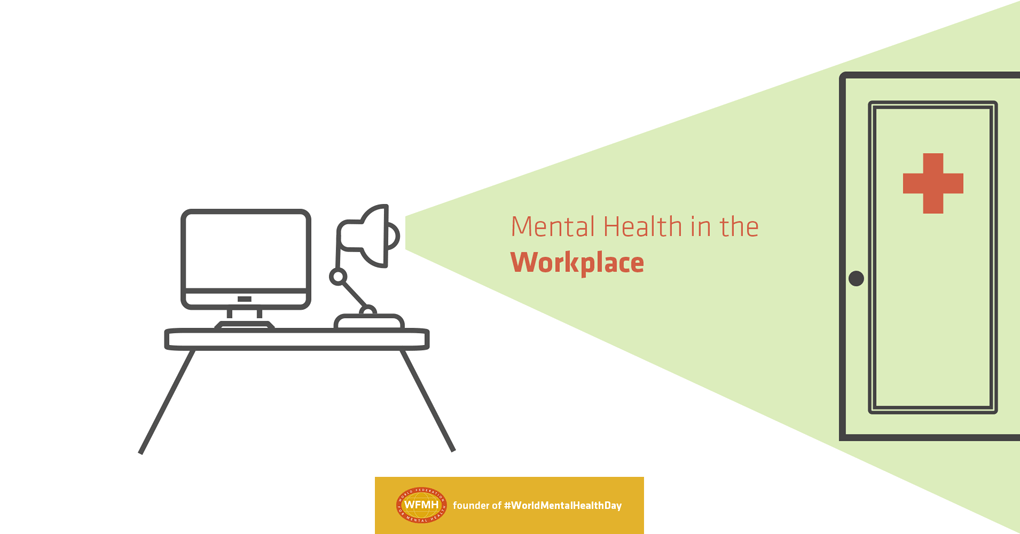October is Mental Health Awareness Month
– Mental Health In The Workplace

October is Mental Health Awareness month. The World Federation for Mental Health’s theme for 2017 is Mental Health in the Workplace.
According to the WFMH, globally:
- 10% of the employed population have taken time off work for depression
- An average of 36 workdays are lost per depression episode
- 50% of people with depression do not receive treatment
- Cognitive symptoms of depression, such as difficulties in concentrating, making decisions and remembering, are present up to 94% of the time during an episode of depression, causing significant impairment in work function and productivity
- Studies have shown that just $1 of investment in treatment for depression and anxiety leads to a return of $4 in better health and ability to work
- 6 in 10 people say poor mental health impacts their concentration at work
- Mental health conditions cost employers more than $100 billion and 217 million lost workdays each year
We are suffering from activity overload, choice overload, debt overload, expectation overload, information overload and work overload. Stress contributes to a myriad of illnesses. Some people exhibit cardiovascular symptoms such as racing pulse or chest pain. Some experience gastro-intestinal problems such as hyperacidity, irritable bowel, or diarrhea. Some develop rashes, tics, headaches, musculoskeletal aches and pains, immunological problems, anxiety, depression or insomnia.
When stress is pushed to the limit, burnout results. Employee absenteeism costs the South African economy between R12 billion and 16 billion annually, a large portion of which can be attributed to workplace stress, burn-out and employee ill health. By addressing mental health issues in the workplace and investing in mental health care for workers, employers can increase productivity and employee retention.
Tips for employees:
- Take responsibility for your own physical and mental wellbeing to ensure greater productivity at work.
- Listen to your body. Recognise signs of stress, burnout or depression and get help early.
- Take annual leave – it is there for a purpose – to reload your batteries.
- Learn healthy coping strategies, such as effective time management.
- Incorporate QUIET periods into your daily schedule.
- Limit time spent on electronic devices.
- Value time with your family.
- Adapt a healthy lifestyle with a balance between work and your private life. Keep work work and home home.
Tips for employers:
- Create an organisational culture that promotes mental and physical wellbeing.
- Address mental health issues in the workplace pro-actively by promoting a workspace, which fosters positive mental health and do not tolerate stigmatisation.
- Educate employees about the benefits of a balanced lifestyle (daily exercise, quiet periods, healthy balanced home-cooked meals, sleep-hygiene, disconnection from technology overload, etc.)
- Inform employees about signs of depression and burnout as well as where to get help if they recognise the symptoms in themselves or a colleague.
- Handle employee information with confidentiality.
Contact the Mental Health Information Centre for more information.




